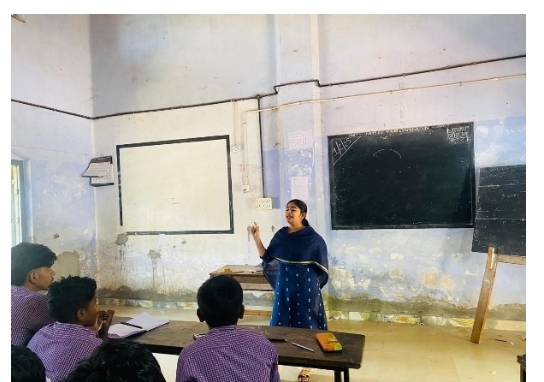A scribe class was conducted by NSS Volunteer Aswathy for students of Classes 8 and 9 to train them in assisting 10th standard disabled students during examinations. The session aimed to equip participants with the necessary skills, awareness, and ethical considerations involved in being an effective scribe.Session OverviewThe class commenced with an introduction to the role of a scribe and its importance in ensuring equal opportunities for disabled students. Aswathy provided an overview of the responsibilities, including:*Writing answers clearly and legibly as dictated by the student*Maintaining confidentiality and neutrality*Managing time effectively during exams*Understanding exam guidelines and rules set by the education boardKey Activities1. Awareness Session:Discussion on the challenges faced by disabled students during examsImportance of patience, accuracy, and unbiased assistance2. Practical Training:Mock exam sessions where students practiced writing under dictationExercises to improve speed and accuracy in writing.3. Ethical Considerations:Guidelines on avoiding personal input or modification of answersMaintaining a professional and supportive approachEnsuring a stress-free environment for the studentFeedback and ConclusionThe session concluded with an interactive Q&A where students shared their experiences and clarified doubts. Participants expressed appreciation for the practical training, which boosted their confidence in assisting 10th standard disabled students.Aswathy emphasized the importance of empathy, patience, and responsibility in being a scribe and encouraged students to take the role seriously to contribute to inclusive education.

![]()